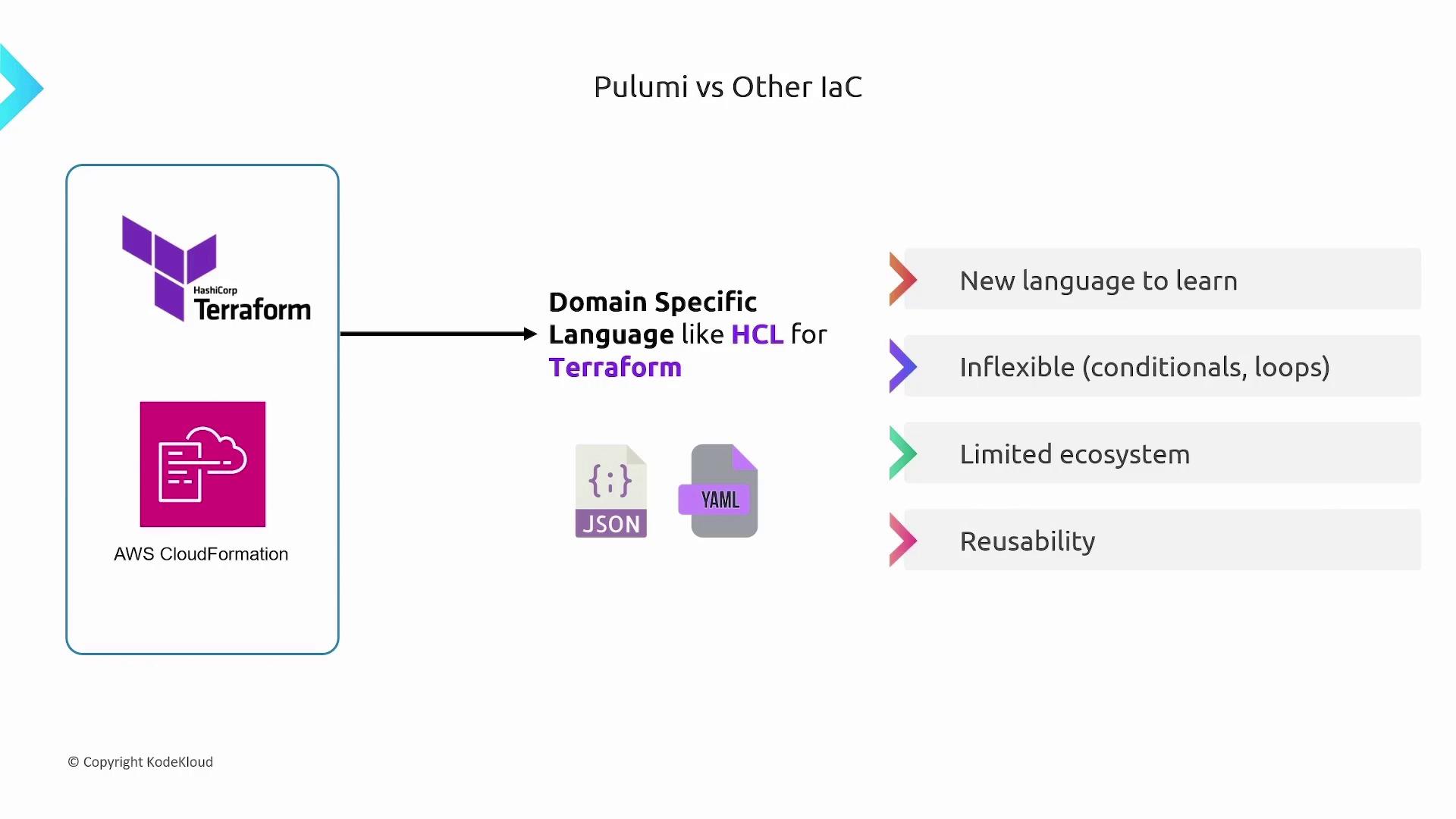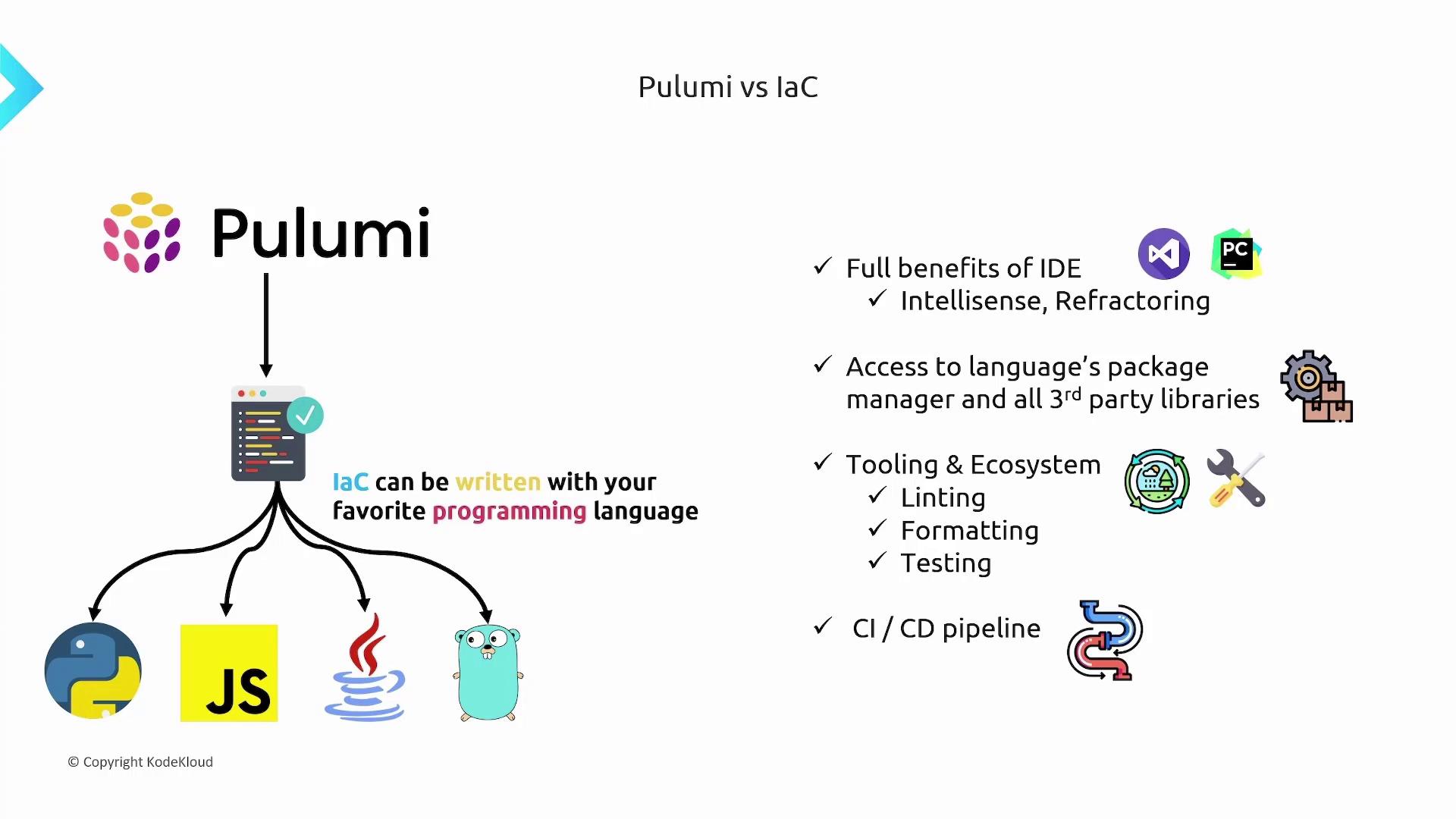Pulumi Essentials
Pulumi Essentials
Pulumi vs Other IaC Tools
In this article, we explore how Pulumi fundamentally differs from traditional Infrastructure as Code (IaC) tools, offering a modern approach that leverages familiar programming languages.
The Limitations of Traditional DSL-based IaC Tools
Traditional IaC tools like Terraform or AWS CloudFormation rely on domain-specific languages (DSLs). For instance, Terraform uses HCL, while AWS CloudFormation works with JSON or YAML. Although these languages are designed to be simple, they come with notable drawbacks:
- Learning Curve: Teams must learn a new, tool-specific language.
- Limited Flexibility: As deployments grow in complexity—incorporating conditionals, loops, and other intricate logic—DSLs can become inflexible compared to traditional programming languages.
- Constrained Ecosystems: The tooling and community-driven features around these DSLs are often limited, hindering code reuse and efficiency.

Pulumi’s Modern Approach
Pulumi redefines the way you manage infrastructure by allowing you to use full-fledged programming languages such as Python, JavaScript, Java, or Go. This approach offers several compelling benefits:
- Familiarity: Developers can work in languages they already know, eliminating the need to learn a new DSL.
- Enhanced IDE Support: Enjoy features like IntelliSense and advanced refactoring capabilities in your integrated development environment (IDE).
- Robust Package Management: Leverage package managers like npm for JavaScript or pip for Python, along with a vast library ecosystem.
- Improved Tooling: Benefit from mature linting, formatting tools, and testing frameworks that simplify unit testing and ensure code quality.
- Streamlined CI/CD Integration: Rely on established CI/CD practices and tools built around your chosen programming language, making continuous integration and deployment more efficient.
Note
Using familiar programming languages not only speeds up development but also ensures that your infrastructure code integrates smoothly with your overall software development lifecycle.

Conclusion
Pulumi enables you to leverage all the advantages of modern programming languages—such as reusability, robust tooling, and a familiar development environment—when defining and managing your infrastructure. This powerful approach leads to more efficient development processes, straightforward testing, and smoother integration into CI/CD workflows.
Let's now take a look at how we can deploy resources onto AWS with a quick demo.
Watch Video
Watch video content